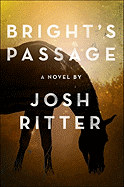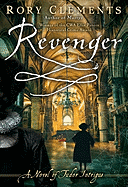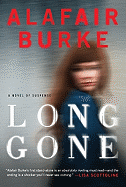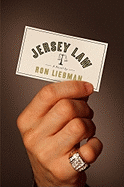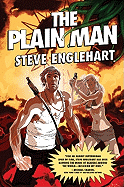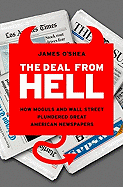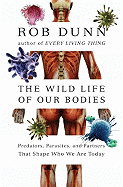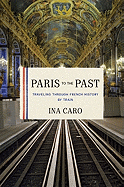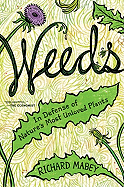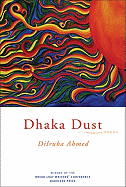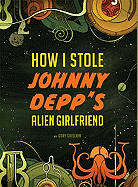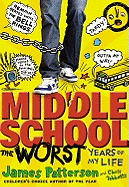 In this author interview, I talk with Josh Ritter, whose debut novel, Bright's Passage, is out today from Dial Press. Ritter has already made a name for himself as an indie folk musician--but his book isn't at all about music. Instead, it charts the unlikely flight of West Virginian Henry Bright, a World War I veteran whose inner demons are matched by evil in-laws, and whose horse speaks to him in an angel's voice. Ritter spoke to me more prosaically, by telephone, from his brother's New York apartment:
In this author interview, I talk with Josh Ritter, whose debut novel, Bright's Passage, is out today from Dial Press. Ritter has already made a name for himself as an indie folk musician--but his book isn't at all about music. Instead, it charts the unlikely flight of West Virginian Henry Bright, a World War I veteran whose inner demons are matched by evil in-laws, and whose horse speaks to him in an angel's voice. Ritter spoke to me more prosaically, by telephone, from his brother's New York apartment:
Josh Ritter and I are talking about King Lear. "It's a pretty good tragedy, right? But when I went back to it, I was amazed that I found myself laughing in spots, and not just the deliberately humorous ones, just laughing at the ridiculousness of it all, these kinds of entanglements that we get ourselves into." Like what, Josh? "Think of Gloucester. He's been blinded and he's looking to die and he will let himself be led to what he thinks is a cliff when there's no cliff there. That humor of no cliff is so pure. It's what it means to be human."Ritter and I agree that the real power of any comedy or any tragedy lies in how close it comes to the other side of things--and the popular folk singer-songwriter is learning more about that as he prepares for the release of his debut novel, Bright's Passage (Dial Press), which tells the story of Henry Bright, a World War I vet whose homecoming to West Virginia results in his fleeing a menacing group of in-laws with nothing but a horse and a goat, and his infant son strapped to his chest. It sounds rather frightening, but Ritter describes it as "comedy."
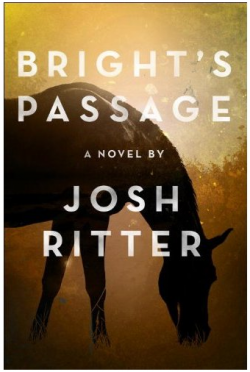 Interestingly, when Ritter explained how he found himself writing fiction, he talked about jumping off of something--but not a cliff: "I just ran off of the diving board," he said. "It was sort of like Dumbo following the magic feather! I had an idea of a character and an idea of this angel, or whatever it was, and this tension I was really excited about."
Interestingly, when Ritter explained how he found himself writing fiction, he talked about jumping off of something--but not a cliff: "I just ran off of the diving board," he said. "It was sort of like Dumbo following the magic feather! I had an idea of a character and an idea of this angel, or whatever it was, and this tension I was really excited about."
He'd toured through West Virginia. "It's a mythic place, still removed a little bit from the rest of the world, I think," he said. "I felt like this guy, my character, had seen a lot, but we really have no idea what happened to him. War is always so absurd. I mean, trying to make a life make sense after what Bright went through? That's why I wanted to leave the angel's voice open to interpretation. Is it Bright experiencing shell shock? Is it magical realism? It doesn't matter."
As for the horse that speaks in the angel's voice, "The horse came on the second page--it was just there--it just came along and was so real I didn't question it. I've always thought that the images I tend to work with are sort of tarot, basically stark, I could see them printed--the falling tower, the hanged man, the horse....
Ritter said his fascination with the First World War was "one of those great, pure curiosities, like when a book just jumps off of the shelf at you." The book in question was Barbara Tuchman's The Proud Tower: A Portrait of the World Before the War, 1890-1914. Once he started reading, and then writing, Ritter said, it took him only two and a half months to get a draft finished. "It was such a rush and made the rest of my day so rich," he added. "But then it took a year of editing and 10 subsequent drafts. I'm in awe of writers who get it right the first time. If I were a sculptor, there would be a lot of disembodied arms lying around my place."
Bright's flashbacks to his wartime experiences in France are an important part of the novel; Ritter noted that he likes the old phrase for shell shock, "soldier's heart." "That's so beautiful, because underneath this steel helmet, there's so much going on, yet that steel helmet didn't protect anybody. Of course, once you put the helmet on, the damage is already done. I was inspired by the work Ann Holes has done with her reporting on the situation at Walter Reed Hospital. One of the questions that is asked of veterans now is, 'Were you part of or did you witness violence?' Aside from the irony of someone actually drafting that question, there's the thing that Bright knows: by the time you are part of it or have witnessed it, you've already experienced it a hundred times in your head. It's heartbreaking how little we seem to care about or feel empathy for that kind of nightmare."
If he could choose anybody as his role model, Ritter said, it would be Mark Twain. "His love of his country was so complete, but he was willing to see ambiguity in things, and to see that sometimes ambiguity was the most precious part of being American--that we're allowed to think whatever we want, no matter how messy. I'm proud that part of that is holding ourselves to account and talking about it. One of the things we need to do is give our veterans better support."
Henry Bright's briefly happy marriage and his widower's grief were at least partly inspired by his creator's own 2009-2011 marriage to fellow musician Dawn Landes. "It was one of the worst times in my life," Ritter said of his marriage's dissolution. "But I know that my ideas of pain are those of a fortunate, first-world, modern American. But I also knew that the questions Bright has about life and marriage are valid, about the vagaries of suddenly having someone in your life that you love unconditionally. It felt so innocent and naïve to me, to be in love like that, so the things I learned are some of the best that came out of that period in my life. This novel came about because of Dawn, because of the safety and comfort I felt in that situation, but it's only looking back now that I can recognize that."
Ritter now also recognizes that he has an alternate career as a writer of fiction, and he's working on some new prose. "I'm not done with anything, but I learned a lot from this book and I'm spending a little bit of time on it every day. I'm not sure if writing will take over, or not. I'm used to having a lot of collaboration with bandmates, and I missed that while writing alone." Ritter added, "The richness that I've gotten out of writing a novel has been something really indescribable. I'm a junkie for it now." --Bethanne Patrick
Portrait of the Artist: Josh Ritter
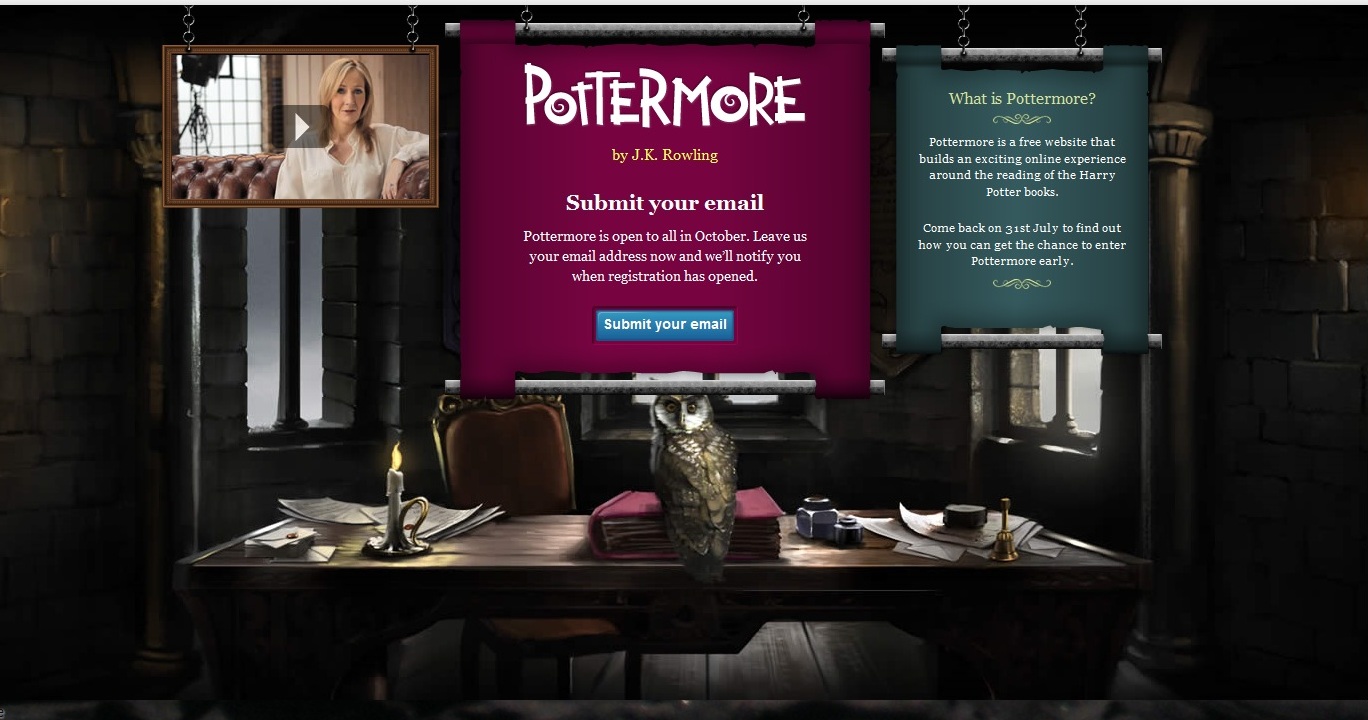 However, once I recovered from my snit and started thinking about Pottermore rather than simply sulking that it isn't as I wished, the possibilities gathered like so many owls. While it seems from various news reports that a big part of Pottermore.com will be about selling the heretofore-unavailable e-editions of the Harry Potter oeuvre, surely an "exciting online experience around... reading" means more than mere commerce--and as author J.K. Rowling revealed in her video (if you haven't watched, it's worth doing so simply for the delightful paper art), readers will shape this experience, and Rowling herself will release some parts of the story she's held on to for years.
However, once I recovered from my snit and started thinking about Pottermore rather than simply sulking that it isn't as I wished, the possibilities gathered like so many owls. While it seems from various news reports that a big part of Pottermore.com will be about selling the heretofore-unavailable e-editions of the Harry Potter oeuvre, surely an "exciting online experience around... reading" means more than mere commerce--and as author J.K. Rowling revealed in her video (if you haven't watched, it's worth doing so simply for the delightful paper art), readers will shape this experience, and Rowling herself will release some parts of the story she's held on to for years.


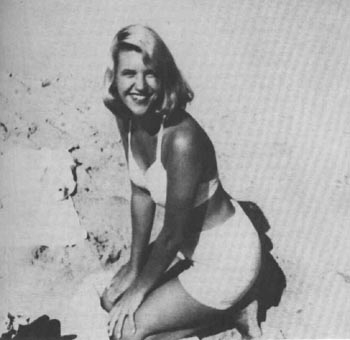 We love Flavorwire's gallery of
We love Flavorwire's gallery of  In this author interview, I talk with Josh Ritter, whose debut novel, Bright's Passage, is out today from Dial Press. Ritter has already made a name for himself as an indie folk
In this author interview, I talk with Josh Ritter, whose debut novel, Bright's Passage, is out today from Dial Press. Ritter has already made a name for himself as an indie folk  Interestingly, when Ritter explained how he found himself writing fiction, he talked about jumping off of something--but not a cliff: "I just ran off of the diving board," he said. "It was sort of like Dumbo following the magic feather! I had an idea of a character and an idea of this angel, or whatever it was, and this tension I was really excited about."
Interestingly, when Ritter explained how he found himself writing fiction, he talked about jumping off of something--but not a cliff: "I just ran off of the diving board," he said. "It was sort of like Dumbo following the magic feather! I had an idea of a character and an idea of this angel, or whatever it was, and this tension I was really excited about."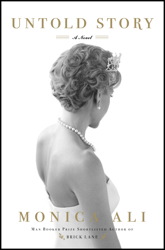 Untold Story: A Novel by Monica Ali (Scribner) is a surprising book from a literary writer who never repeats herself (Brick Lane, Alentejo Blue, In the Kitchen--could there be three books more different?). Ali has chosen to imagine what might have happened to an unhappy British princess who, divorced and untethered, did not die in an accident, but escaped to a new life in the United States. Yes, there are similarities to the story of a woman named Diana who was killed in 1997---but there are also interesting differences. It's a deceptively congruent and simple idea that Ali uses to bring up questions any woman will recognize: What is peace? Would you leave your children behind for it? What makes up an identity?
Untold Story: A Novel by Monica Ali (Scribner) is a surprising book from a literary writer who never repeats herself (Brick Lane, Alentejo Blue, In the Kitchen--could there be three books more different?). Ali has chosen to imagine what might have happened to an unhappy British princess who, divorced and untethered, did not die in an accident, but escaped to a new life in the United States. Yes, there are similarities to the story of a woman named Diana who was killed in 1997---but there are also interesting differences. It's a deceptively congruent and simple idea that Ali uses to bring up questions any woman will recognize: What is peace? Would you leave your children behind for it? What makes up an identity?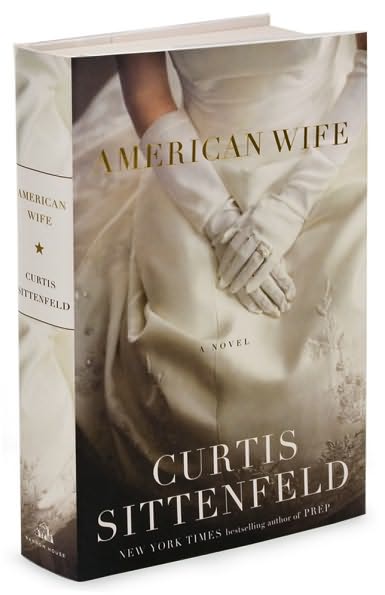 Another imagined outcome: Read American Wife by Curtis Sittenfeld, in which a thinly veiled version of Laura Bush tells her entire life story--and you have to read to the very last word to understand Sittenfeld's creative genius. You may be surprised by how much you wind up believing that this is nonfiction, too.
Another imagined outcome: Read American Wife by Curtis Sittenfeld, in which a thinly veiled version of Laura Bush tells her entire life story--and you have to read to the very last word to understand Sittenfeld's creative genius. You may be surprised by how much you wind up believing that this is nonfiction, too.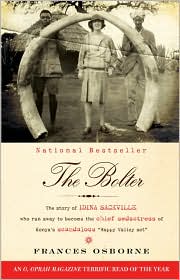 Another troubled British mum: Read The Bolter by Frances Osborne. A "bolter" is a veddy upperclass term for a wife and mother who runs away, and five-time divorcee Lady Idina Sackville (her lapdog was named Satan) is a prime example. Her true story (for the fictional version, read or see White Mischief) is told her by her great-great-granddaughter Osborne.
Another troubled British mum: Read The Bolter by Frances Osborne. A "bolter" is a veddy upperclass term for a wife and mother who runs away, and five-time divorcee Lady Idina Sackville (her lapdog was named Satan) is a prime example. Her true story (for the fictional version, read or see White Mischief) is told her by her great-great-granddaughter Osborne.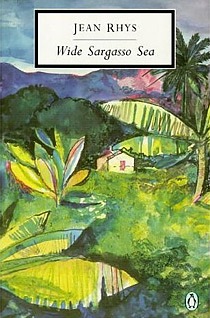 Another unhappy wife: Read Wide Sargasso Sea by Jean Rhys, a classic literary inversion, this one of Jane Eyre. Creole heiress Antoinette Cosway is married off to an Englishman (Mr. Rochester) and slowly becomes "the madwoman in the attic" in an unfamiliar and lonely place. If you've never encountered this book, you're in for--well, not exactly a treat, but an amazing experience.
Another unhappy wife: Read Wide Sargasso Sea by Jean Rhys, a classic literary inversion, this one of Jane Eyre. Creole heiress Antoinette Cosway is married off to an Englishman (Mr. Rochester) and slowly becomes "the madwoman in the attic" in an unfamiliar and lonely place. If you've never encountered this book, you're in for--well, not exactly a treat, but an amazing experience.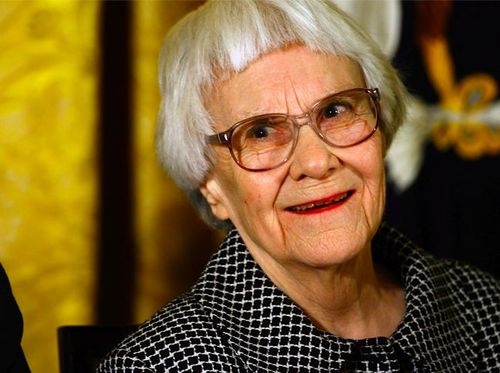 Two-thirds of respondents to the latest
Two-thirds of respondents to the latest 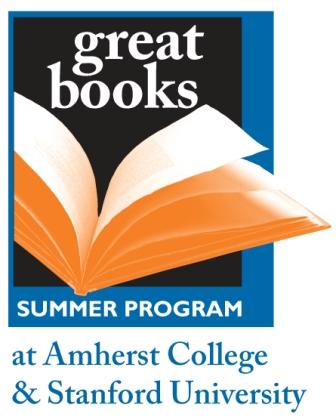 The summer of 2011 marks the 10th anniversary of the
The summer of 2011 marks the 10th anniversary of the  The folks at
The folks at  If you've been in the market for a bookstand and like clean, modern design, the
If you've been in the market for a bookstand and like clean, modern design, the 